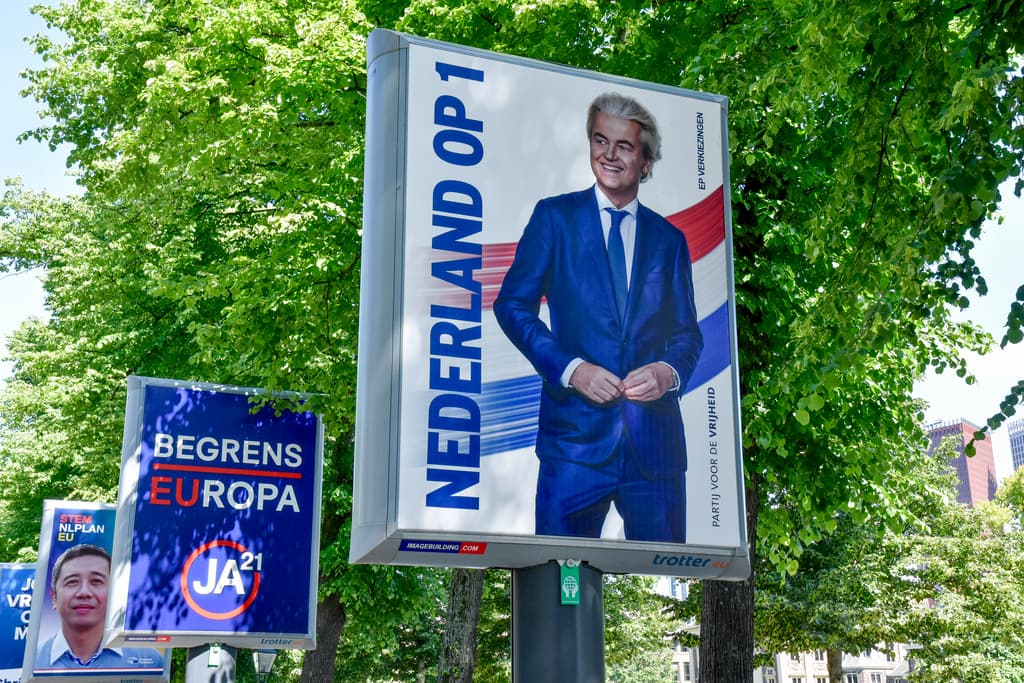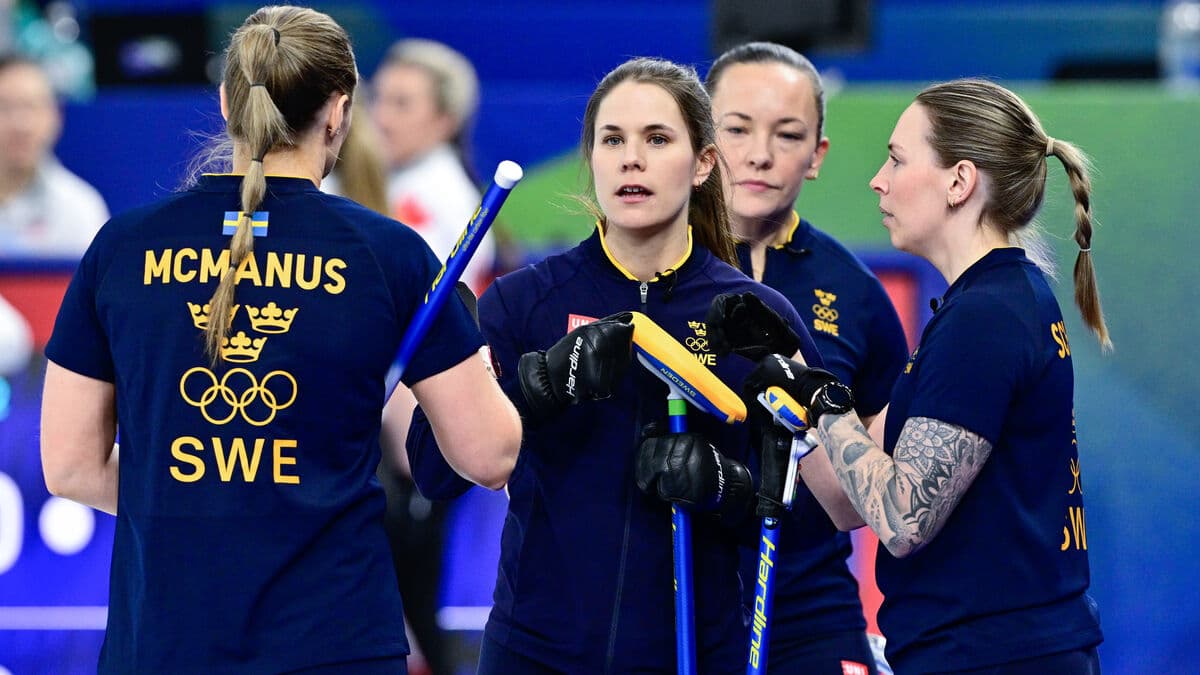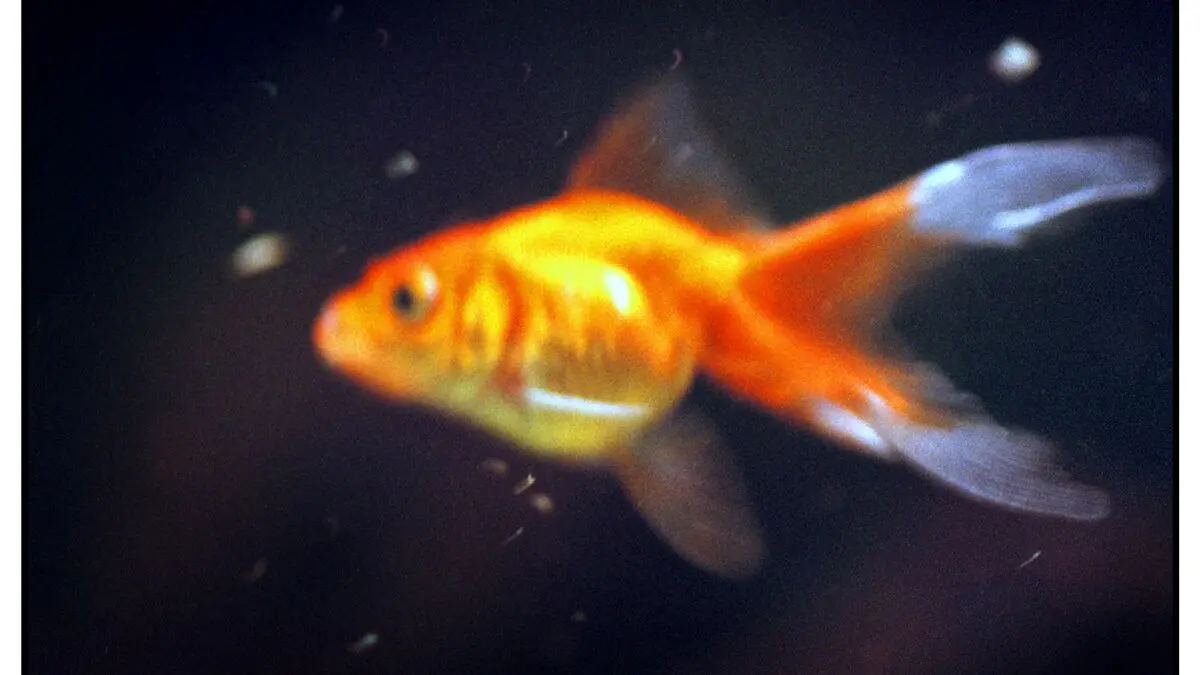Environmentalist and social democrats are shocked when the Netherlands is first out in the EU election.
The red-green coalition seems to get one more seat than the Islamophobic Geert Wilders, according to a poll in Dutch TV.
Some results from the Netherlands' voting cannot be reported until all EU countries have voted on Sunday.
But exit polls are another thing. And according to one from Dutch TV, the coalition between the Greens and social democrats, Groen Links/PVDA, gets eight seats in the European Parliament – one more than Wilders' far-right party PVV.
The jubilation was huge at the red-green election party. Other results also suggest a better election for traditional parties than expected.
But Wilders was still confident. "PVV is the big winner," he writes on X, and continues: "And very exciting, we can still become the largest when the final result comes on Sunday".
Even if PVV did not become the largest, the result is still a huge success for the party, which got only one seat in the EU election in 2019. Now it confirms the growth that made the party the largest in the national parliamentary election last fall.
In the well-being and beach town of Scheveningen in The Hague, many voters pragmatically say that a high-pressure wind is blowing.
Wilders has indeed had to step back when it comes to taking his place in the government that is currently being formed in the Netherlands, led by long-time civil servant Dick Schoof.
However, the fact that there is a government agreement between Wilders' PVV and three cooperation parties has been perfect for the far-right leader. Now he can show himself to be a negotiator and a politically acceptable politician.
Total, the far right and other similar parties in the EU are expected to be able to gather up to a quarter of the 720 seats in the European Parliament. Not all of them, however, draw in the same direction, with different views on everything from Russia to family policy and the economy.
The more of them there are, the harder pressure they can put on the traditional right in the EU to get a cooperation agreement like the Tidö agreement. In the Netherlands, PVV has clearly softened its tone to get its party leader accepted as "Milders" rather than Wilders.
In central The Hague, however, voter Els is skeptical, saying as she leaves a polling station at Prins Hendrikplein:
The election to the European Parliament is held in all 27 member states, with a total of 720 members to be elected, distributed in accordance with the size of the member states.
Here's how the countries vote (with the number of seats in parentheses):
• Thursday: Netherlands (31)
• Friday: Ireland (14) and Czech Republic (21)
• Saturday: Italy (76), Malta (6), Latvia (9), Slovakia (15) and Czech Republic (21)
• Sunday: Belgium (22), Bulgaria (17), Cyprus (6), Denmark (15), Estonia (7), Finland (15), France (81), Greece (21), Italy (76), Croatia (12), Lithuania (11), Luxembourg (6), Poland (53), Portugal (21), Romania (33), Slovenia (9), Spain (61), Sweden (21), Germany (96), Hungary (21) and Austria (20)
Footnote: In the Czech Republic, polling stations are open on both Friday and Saturday, in Italy on both Saturday and Sunday.
This is how the outcome of the Netherlands' EU election looks according to a poll for TV station NOS:
Groen Links/PVDA (environmentalist/social democrat): 8 seats
PVV (far-right): 7 seats
VVD (right-liberal): 4 seats
CDA (Christian democrat): 3 seats
D66 (left-liberal): 3 seats
BBB (agricultural populist): 2 seats
Volt (pan-European): 1 seat
NSC (conservative): 1 seat
PVDD (animal rights party): 1 seat
SGP (Christian): 1 seat
The real election result will be presented first on Sunday, when all other EU countries have also voted.






